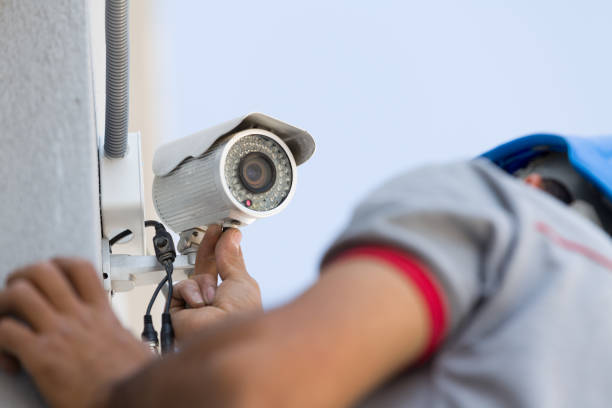Closed-circuit television (CCTV) systems have transformed ubiquitous in modern society, playing a vital role in investigation and security. From public spaces to private establishments, CCTV cameras make available a watchful eye, deterring crime, and enhancing safety. In this blog, we will security system installation explore the general usage of CCTV systems worldwide, their benefits, and their impact on safekeeping and privacy.
CCTV cameras function as invaluable tools in gathering evidence and accompanying investigations. Recorded footage from CCTV systems can provide crucial evidence in identifying suspects, reenacting events, and supporting legal events. This evidence can be influential in resolving disputes, solving crimes, and distributing justice.
Crime Deterrence and Prevention:
One of the crucial purposes of CCTV systems is to deter criminal activities. The incidence of visible cameras acts as a deterrent, discouraging potential wrongdoers from engaging in illegal acts. Knowing that they are being monitored, people are less likely to commit crimes, resulting in safer environments for both public sitting room and private premises.
Prompt Emergency Response: CCTV systems underwrite to prompt emergency response by providing real-time monitoring and surveillance. In the event of an happening, such as theft, vandalism, or an alternative situation, CCTV footage can assist security personnel and law enforcement agencies in identifying the perpetrators and pleasing immediate action. This quick rejoinder capability can help minimize the impact of criminal activities and ensure municipal safety.
Gathering Evidence and Investigations:
CCTV cameras function as invaluable tools in gathering evidence and accompanying investigations. Recorded footage from CCTV systems can provide crucial evidence in identifying suspects, reenacting events, and supporting legal events. This evidence can be influential in resolving disputes, solving crimes, and distributing justice. Knowing that they are being monitored, people are less likely to commit crimes, resulting in safer environments for both public sitting room and private premises.
Public Safety in High-Risk Areas: CCTV systems play a essential role in enhancing public safety in high-risk areas such as passage hubs, city centers, and critical infrastructure. By monitoring these areas, security people can identify potential threats, monitor crowd movements, and answer back swiftly to any suspicious activities. This proactive surveillance helps safety device the well-being of the public and helps maintain order in densely populated or penetrating locations.
Traffic Monitoring and Management:
CCTV classifications are widely used for traffic monitoring and managing purposes. Cameras placed at strategic locations assist in monitoring traffic flow, identifying congestion themes, and detecting traffic violations. This information enables the system to make informed decisions. Implement traffic control measures, and optimize traffic administration. Resulting in improved road safety and smoother traffic association. CCTV systems underwrite to prompt emergency response by providing real-time monitoring and surveillance. In the event of an happening, such as theft, vandalism. Or an alternative situation, CCTV footage can assist security personnel. And law enforcement agencies in identifying the perpetrators and pleasing immediate action. This quick rejoinder capability can help minimize the impact of criminal activities and ensure municipal safety.
Privacy Concerns and Ethical Deliberations: While CCTV systems offer numerous benefits, their usage raises privacy concerns and ethical contemplations. Striking a balance between security and secrecy is crucial. Responsible implementation of CCTV systems should include proper signage. To inform individuals of surveillance, secure storage of footage, and adherence to data fortification regulations. Transparency and accountability in the use of CCTV systems. Are indispensable to ensure that privacy rights are respected while continuing public safety.
Conclusion:
CCTV systems have turn out to be integral components of surveillance and security strategies worldwide. From deterring crime and facilitating reserve response to gathering evidence. And ensuring public protection, CCTV cameras play a significant role in maintaining secure settings. However, it is essential to address privacy concerns and adhere to ethical considerations when implementing CCTV systems. Striking the right balance flanked by security and privacy. Will confirm that these surveillance tools continue to serve as effective means of enhancing safety. And defending communities in an ever more consistent world.
One of the crucial purposes of CCTV systems is to deter criminal activities. The incidence of visible cameras acts as a deterrent, discouraging potential wrongdoers from engaging in illegal acts. Knowing that they are being monitored, people are less likely to commit crimes. Resulting in safer environments for both public sitting room and private premises.

